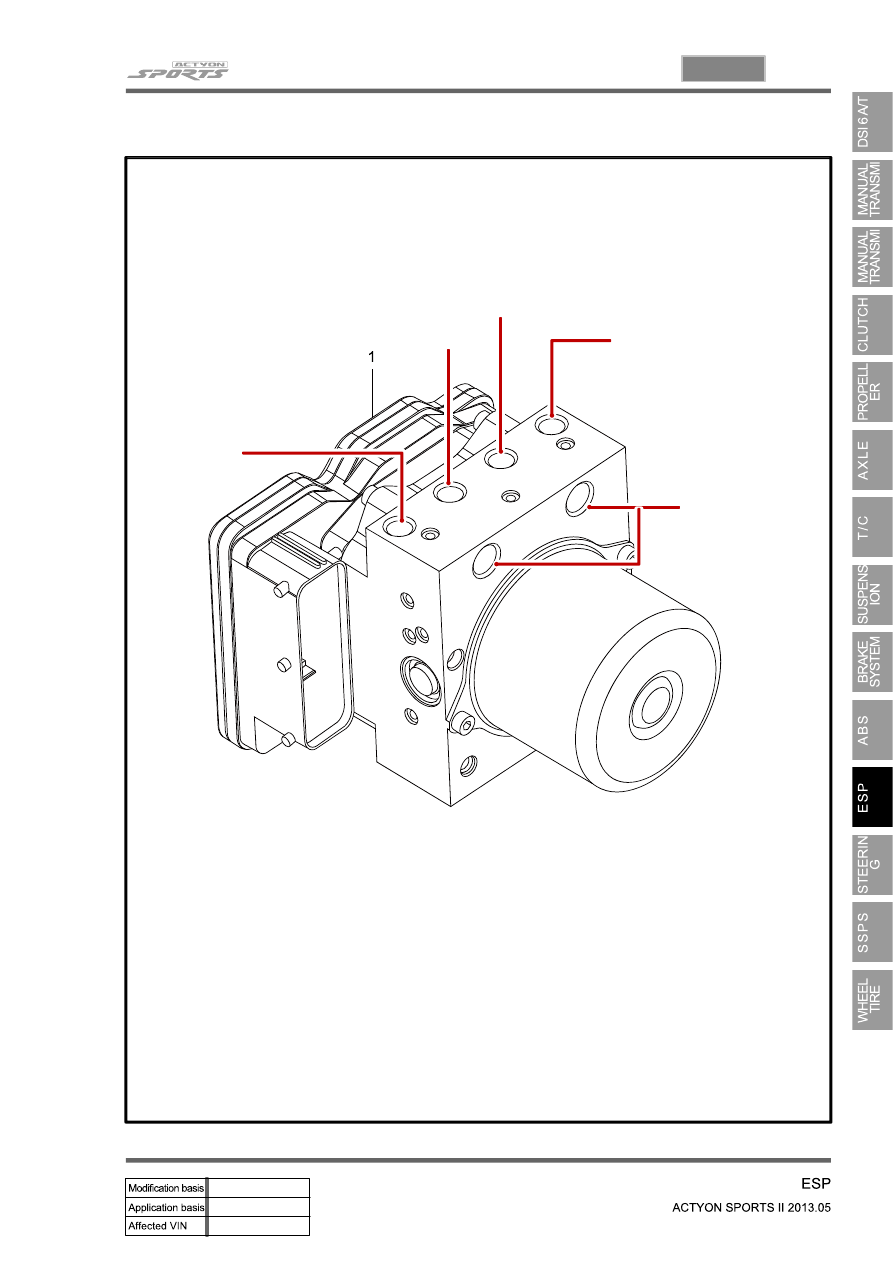SsangYong Actyon Sports II. Manual - part 153

11-7
4890-10
HECU (Hydraulic & Electronic Control Unit)
▶
to FL wheel
to RR wheel
to RL wheel
to FR wheel
Hydraulic & Electronic Control Unit (HECU)
1.
to master cylinder
|
|
|

11-7 4890-10 HECU (Hydraulic & Electronic Control Unit) ▶ to FL wheel to RR wheel to RL wheel to FR wheel Hydraulic & Electronic Control Unit (HECU) 1. to master cylinder |